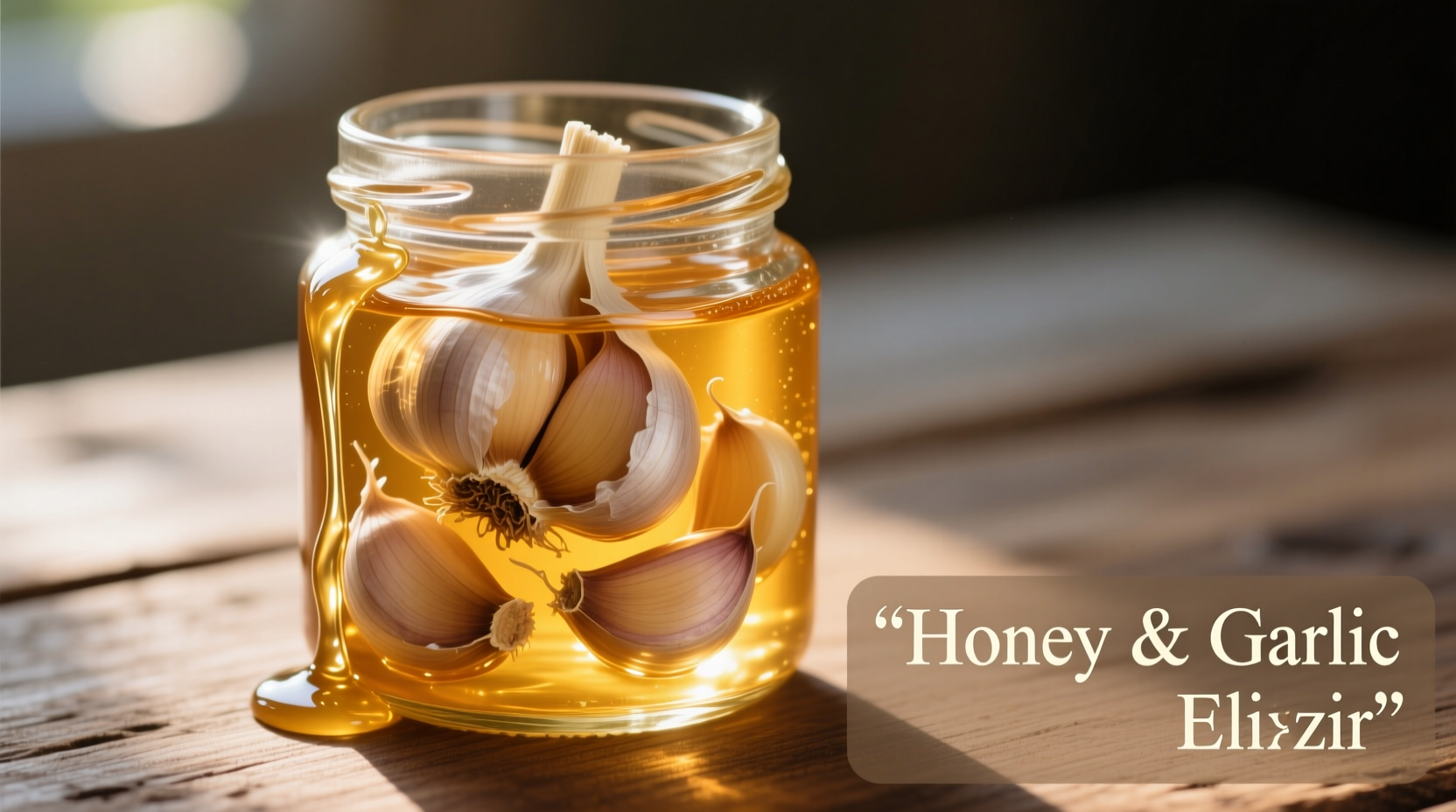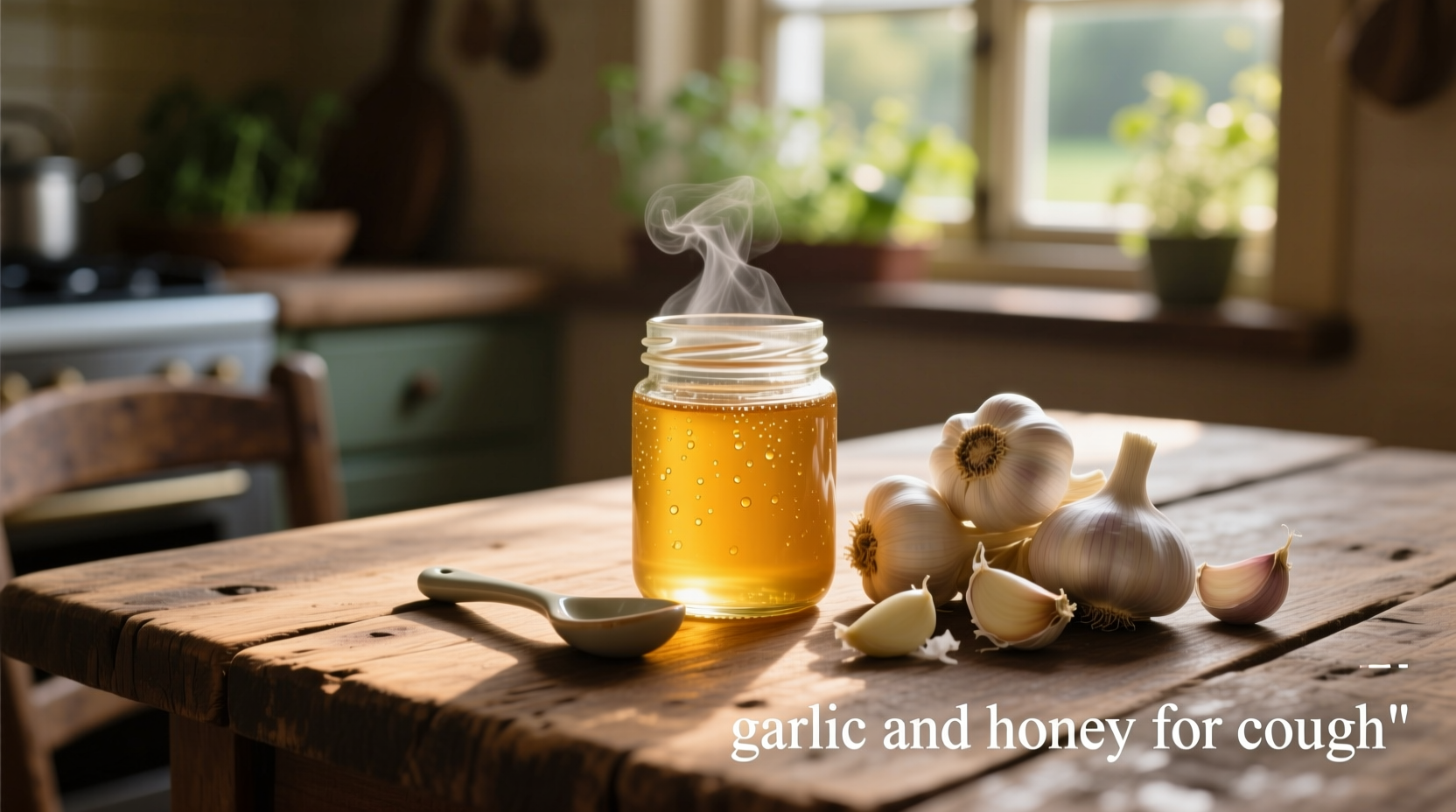When that persistent cough keeps you up at night, many turn to the kitchen cabinet before the medicine cabinet. The combination of garlic and honey has been used across cultures for generations as a natural cough remedy. But does science support this traditional approach? Let's examine what evidence tells us about this popular home treatment.
The Science Behind Honey for Cough Relief
Honey isn't just folklore when it comes to cough relief—it has substantial scientific backing. According to a American Academy of Pediatrics review, honey outperforms many over-the-counter cough medicines for nighttime cough relief in children over age 1. A comprehensive Cochrane Review analyzing multiple studies concluded that honey likely provides a modest improvement in cough symptoms compared to no treatment.
The thick, viscous nature of honey coats the throat, reducing irritation that triggers coughing. Additionally, honey has mild antimicrobial properties that may help address underlying causes of some coughs. Unlike many cough medicines, honey doesn't carry risks of drowsiness or other side effects for most adults and children over 1 year.

Garlic's Potential Role in Respiratory Health
Garlic contains allicin, a compound with documented antimicrobial and immune-boosting properties. Research published in NIH's PubMed Central indicates allicin may help fight certain bacteria and viruses that cause respiratory infections. However, the evidence specifically linking garlic to cough relief is less robust than for honey.
When garlic is crushed or chopped, the enzyme alliinase converts alliin to allicin—the active compound responsible for garlic's health benefits. This reaction requires time and exposure to air, which is why simply swallowing raw garlic won't maximize its potential benefits.
Evidence-Based Preparation Methods
| Preparation Method | Instructions | Best For |
|---|---|---|
| Honey-Garlic Syrup | Crush 2-3 garlic cloves, let sit 10 minutes, then cover with 2 tbsp raw honey. Wait 12 hours before use. | Nighttime cough relief |
| Warm Honey-Garlic Tea | Add 1 tsp prepared syrup to warm water or herbal tea (not boiling, which destroys honey's benefits). | Daytime soothing |
| Direct Consumption | Take 1 tsp of prepared syrup every 4-6 hours as needed. | Immediate relief |
Important Safety Considerations
While generally safe for most people, this natural remedy has important limitations. The U.S. Food and Drug Administration strictly warns against giving honey to infants under 1 year due to the risk of infant botulism. Garlic may interact with blood thinners and some HIV medications, so consult your doctor if you take prescription medications.
Raw garlic can cause stomach upset, heartburn, or allergic reactions in some individuals. Start with small amounts to assess tolerance. The remedy's strong flavor may be too intense for young children, so consider using honey alone for kids between 1-2 years old.
When Natural Remedies Aren't Enough
Natural treatments like garlic and honey work best for mild, acute coughs from common colds. However, certain symptoms require immediate medical attention:
- Cough lasting more than 3 weeks
- Blood in mucus
- Difficulty breathing or wheezing
- High fever (over 101°F/38.3°C) lasting more than 3 days
- Chest pain
The Centers for Disease Control and Prevention emphasizes that persistent coughs could indicate serious conditions like pneumonia, bronchitis, or whooping cough that require medical treatment. Natural remedies shouldn't replace professional care when needed.
Setting Realistic Expectations
While honey has demonstrated effectiveness for cough relief, garlic's role is more supportive than primary. Think of this combination as complementary to rest and hydration, not a cure-all solution. Most coughs resolve within 1-3 weeks as your body fights the underlying infection.
For optimal results, use raw, unprocessed honey (like manuka or local varieties) which retains more beneficial compounds than processed supermarket honey. The garlic should be freshly crushed and allowed to activate before combining with honey.











 浙公网安备
33010002000092号
浙公网安备
33010002000092号 浙B2-20120091-4
浙B2-20120091-4